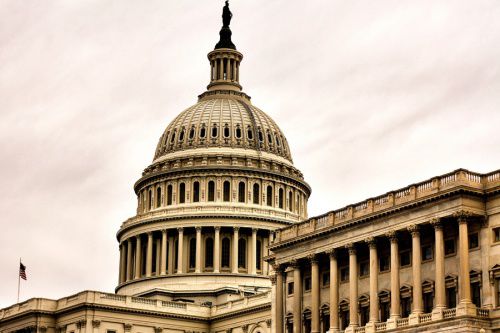President Barack Obama on Friday signed a bill reauthorizing the U.S. Commission on International Religious Freedom, ending a period of speculation about the future of the religious freedom watchdog. The extension comes two days after the release of annual State Department report on global religious freedom, for which the commission is an advisor. Senate bill S. 2078 reauthorizes the U.S. Commission on International Religious Freedom (USCIRF) through September 30, 2019 with some amendments made to the organization’s operations. Congress had granted the commission a nine-month temporary extension last December, and the House included a temporary extension in its stopgap spending bill that saved it from expiring this year at the end of September. The House later passed the Senate bill on Oct. 6 and sent it to the president to be signed into law. The U.S. Bishops Conference had asked for the commission’s reauthorization in an Aug. 26 letter to Congress, calling religious freedom “critical to the health of societies” and warning of “a worldwide pandemic of religious intolerance.” The conference also praised USCIRF for “its vital role in promoting human dignity and human rights around the world by monitoring and promoting religious freedom.” USCIRF was set up under the International Religious Freedom Act of 1998 as an independent government religious freedom watchdog that monitors abuses of human rights and religious freedom around the world. It issues an annual report on the global state of religious freedom and makes recommendations to the State Department before the agency’s yearly religious freedom report is published. Included in these recommendations are countries USCIRF says the State Department should add to its list of “Countries of Particular Concern,” or countries with serious violations of religious freedom that are “systematic, ongoing, and egregious.” The U.S. can take various courses of action concerning such countries, including imposing economic sanctions or negotiating a bilateral agreement. Although USCIRF had recommended that eight new countries be designated as countries of particular concern, the State Department made no additions to the CPC list in its 2014 International Religious Freedom report. Nine countries occupy the current list -- Burma, China, Eritrea, Iran, North Korea, Saudi Arabia, Sudan, Turkmenistan, and Uzbekistan. USCIRF had recommended that Egypt, Iraq, Nigeria, Pakistan, Syria, Tajikistan, Turkmenistan, and Vietnam be added to the list. It added that the agency should expand its definition of “countries of particular concern” to include countries where a non-state actor is committing serious and continued abuses of religious freedom and the government is either non-existent or powerless to stop the abuses. The State Department’s 2014 International Religious Freedom report, published last Wednesday, did highlight the rise of religious persecution by non-state rebel and terror groups in Asia and Africa. Non-state actors “are now the principal persecutors and preventers of religious tolerance and practice,” Secretary of State John Kerry warned in his remarks introducing the report. In Iraq and Syria, for example, forces of the Islamic State have conducted a systematic campaign of terror and violence, killing and displacing hundreds of thousands of Christians, Yazidis and Shia Muslims, the report noted. Meanwhile in Nigeria, the terror group Boko Haram — whose name means, “Western education is sinful” — continued its bloody “quest to impose its political and religious beliefs,” the report stated, killing “more people in 2014 than the previous five years of the conflict combined” according to estimates. In addition, 2014 saw a disturbing rise in public anti-Semitism in Western Europe, the report noted, which “left many pondering the viability of Jewish communities in some countries.” This largely took the form of hate speech and the desecration of synagogues and Jewish memorials, but it did erupt in violence like with the killing of four at the Jewish Museum of Belgium in May of 2014. Religious freedom advocates hailed the primacy given in the report to non-state actors as the top violators of religious freedom. “I’m really happy with the direction they’re going,” said Professor Robert Destro of the Catholic University of America’s Columbus School of Law, about the State Department in an interview with CNA. He admitted that the inclusion of “non-state actors” in the report was the “biggest thing” he was looking for when reading it. “The fact that this report gives more attention to violent Islamist extremism is to be welcomed,” added Dr. Tom Farr, director of the Religious Freedom Project at Georgetown University’s Berkley Center for Religion, Peace, and World Affairs. However, although the State Department’s reports have generally diagnosed the “problem” well, a good report does not automatically mean good policy, Farr noted. “The United States should have an active, aggressive, all-hands-on- deck policy of advancing the institutions and habits of religious freedom in key countries around the world,” he said. The agency’s Ambassador at-Large for International Religious Freedom, Rabbi David Saperstein, has been “stellar,” Farr continued, but he must have the proper support for his job. “He needs the authority and the resources to develop strategies and programs that are more than reports and words,” Farr stressed.

